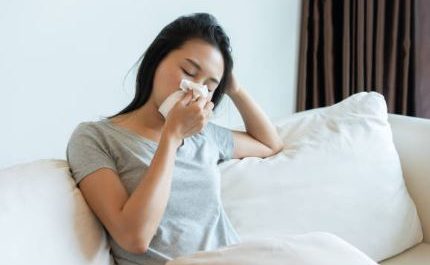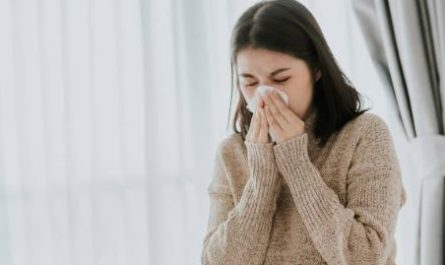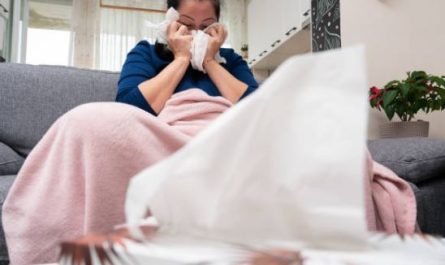Pneumonia relapse refers to the recurrence or return of pneumonia symptoms after completing a course of antibiotic treatment. There can be several reasons why pneumonia relapses despite antibiotic treatment:
Incomplete Eradication of the Pathogen
Antibiotics are used to treat bacterial pneumonia, but if the prescribed antibiotic does not effectively target the specific bacteria causing the infection or if the course of antibiotics is not completed as directed, it can lead to incomplete eradication of the pathogen. This can allow the bacteria to persist and cause a relapse of pneumonia symptoms.
Antibiotic Resistance
Some bacteria have developed resistance to commonly used antibiotics, making them less effective in treating infections. If the bacteria causing pneumonia are resistant to the prescribed antibiotic, it may not fully eliminate the infection, leading to relapse.
Underlying Health Conditions
Certain underlying health conditions, such as chronic lung diseases, immunodeficiency disorders, or compromised immune systems, can make individuals more susceptible to recurrent pneumonia. These conditions can weaken the immune response, making it harder to fully clear the infection and increasing the risk of relapse.
Reinfection
It’s important to distinguish between relapse and reinfection. Reinfection occurs when a person is exposed to a different strain or a new pathogen after recovering from the initial pneumonia. The new infection may present similar symptoms and be mistaken for a relapse.
Unrelated Respiratory Conditions
Sometimes, symptoms that appear to be a relapse of pneumonia may be due to other respiratory conditions or complications. These conditions may have similar symptoms, such as cough and shortness of breath, but may require different treatment approaches.
If you experience a relapse of pneumonia symptoms after completing antibiotic treatment, it is crucial to consult with a healthcare professional. They can evaluate your condition, conduct further diagnostic tests if necessary, and determine the appropriate course of action. Adjustments to the antibiotic treatment or additional investigations may be needed to address the underlying cause and prevent further relapses.
How to prevent Pneumonia Relapse
To help prevent pneumonia relapse and reduce the risk of recurrent infections, consider the following measures:
Complete the Full Course of Antibiotics
If you have been prescribed antibiotics to treat pneumonia, make sure to take the full course as directed by your healthcare professional. Do not stop taking the medication early, even if you start feeling better. Completing the full course helps ensure that the infection is completely eradicated.
Follow Medical Advice
It’s essential to follow the advice and instructions provided by your healthcare professional regarding treatment, follow-up appointments, and any necessary lifestyle changes. This may include recommendations on medications, vaccinations, respiratory exercises, and lifestyle modifications.
Practice Good Hand and Respiratory Hygiene
Wash your hands frequently with soap and water for at least 20 seconds, especially before eating, after using the restroom, and after being in public places. If soap and water are not available, use alcohol-based hand sanitizers. Additionally, cover your mouth and nose with a tissue or your elbow when coughing or sneezing, and dispose of used tissues properly. These practices help prevent the spread of respiratory infections and reduce the risk of reinfection.
Vaccination
Stay up to date with recommended vaccinations to help prevent infections that can lead to pneumonia. Vaccines such as pneumococcal vaccines and influenza (flu) vaccines can help protect against specific pathogens that cause pneumonia.
Maintain a Healthy Lifestyle
A strong immune system can help prevent infections, including pneumonia. To support your immune system:
-Eat a balanced diet rich in fruits, vegetables, whole grains, and lean proteins.
-Engage in regular physical activity.
-Get enough sleep and rest.
-Manage stress levels.
-Avoid smoking and limit exposure to secondhand smoke.
Address Underlying Health Conditions
If you have any underlying health conditions, such as chronic lung diseases or immune system disorders, work with your healthcare professional to manage them effectively. Treating and controlling these conditions can help reduce the risk of pneumonia recurrence.
Avoid Exposure to Respiratory Irritants
Minimize exposure to environmental pollutants, smoke, and other respiratory irritants that can increase the risk of respiratory infections. This includes staying away from areas with heavy air pollution and avoiding exposure to chemicals and allergens that can irritate the respiratory system.
Regular Follow-up Care
Attend scheduled follow-up appointments with your healthcare professional to monitor your recovery progress and address any concerns or symptoms promptly.
It’s important to consult with your healthcare professional for personalized advice on preventing pneumonia relapse based on your specific medical history and circumstances. They can provide guidance tailored to your needs and help you take appropriate measures to reduce the risk of recurrence.
Is Pneumonia Relapse Dangerous?
Pneumonia relapse can be a concerning and potentially serious situation, as it indicates a recurrence or return of pneumonia symptoms after a previous episode of the infection. While it is not uncommon for individuals to experience recurrent pneumonia, the severity and risks associated with a relapse can vary depending on several factors:
Underlying Health Conditions
If a person has underlying health conditions that compromise their immune system or respiratory function, such as chronic lung diseases, heart disease, diabetes, or immunodeficiency disorders, the risk of pneumonia relapse can be higher. These conditions can weaken the body’s defenses and make it more difficult to fight off infections effectively.
Age and Vulnerability
Certain age groups, such as infants, young children, older adults, and individuals with weakened immune systems, may be more vulnerable to the complications of pneumonia relapse. They may have a reduced ability to fight off the infection or a higher risk of developing severe symptoms.
Pathogen Resistance
If the relapse is caused by bacteria that have become resistant to the previously prescribed antibiotics, it can complicate treatment and increase the risk of severe or persistent infection.
Delayed or Inadequate Treatment
If the relapse is not promptly recognized and treated appropriately, it can lead to the progression of the infection and potentially result in complications such as lung abscesses, pleural effusion (fluid accumulation around the lungs), or respiratory failure.
It’s important to seek medical attention if you suspect a relapse of pneumonia or if you experience symptoms such as persistent cough, difficulty breathing, chest pain, fever, or worsening of general health. A healthcare professional can evaluate your condition, determine the underlying cause, and prescribe appropriate treatment to address the relapse.
In general, early diagnosis and prompt treatment of pneumonia relapse are crucial to prevent complications and promote a successful recovery. Follow-up care and monitoring after an initial pneumonia episode are important to ensure that the infection has been fully resolved and to address any risk factors that may contribute to relapse. It’s advisable to consult with a healthcare professional for personalized guidance and to discuss any concerns related to pneumonia relapse.



